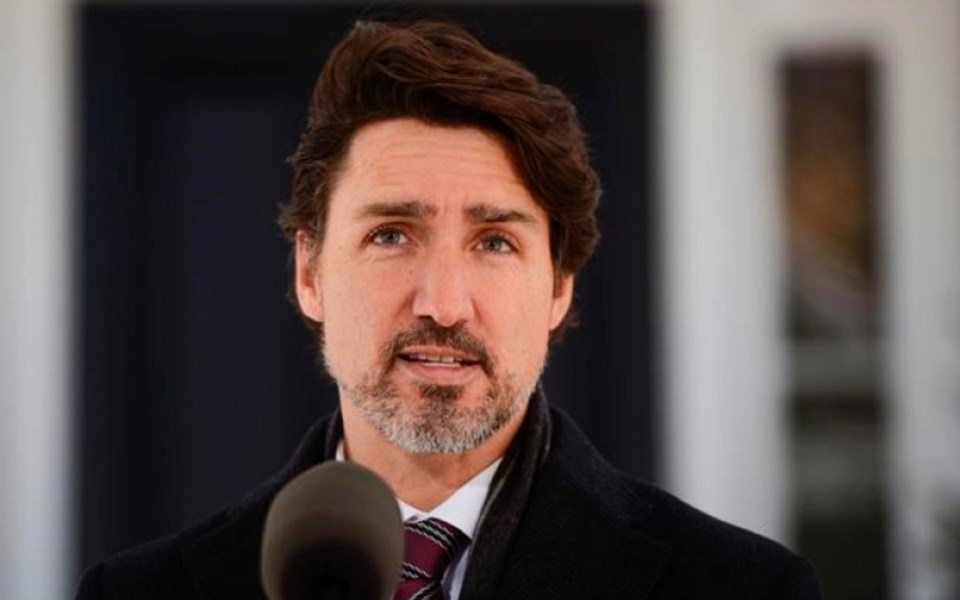The sweep of COVID-19 throughout Canada's nursing homes is proving more devastating than expected, Prime Minister Justin Trudeau said Thursday as the federal government weighed sending the military to support health-care workers in Quebec.
The prime minister said Quebec, where major outbreaks in long-term care homes have worsened staffing shortages, had formally requested federal help and a response could involve the Canadian Red Cross, the military or volunteers.
But he stressed measures to protect seniors in care facilities from the potentially deadly virus would be discussed with all provincial and territorial leaders Thursday evening.
"I think one of the things we've seen over the past number of weeks is a far more severe impact on a number of seniors' residences and long-term care centres than we had certainly hoped for, or more than we feared," Trudeau said.
"It is impossible to imagine the anguish families and indeed our elders are going through in this situation—there is just so much fear, so much uncertainty," he said.
"We need to do a better job of being there for them. The federal government is looking at ways to support the provinces, as they deal with this issue."
While the overall curve of new confirmed COVID-19 cases is "bending," the proportion of outbreaks in long-term care centres has led to a higher death rate than expected, Canada's top doctor said.
Dr. Theresa Tam, the country's chief public health officer, said more than 90 per cent of the patients confirmed to have died from the virus are over the age of 60, and half of them lived in long-term care centres.
As of Thursday, 1,048 people have died from COVID-19 in Canada and Tam said models are now predicting 1,200 and 1,620 deaths by April 21.
Economic relief was also at the forefront Thursday, as Ottawa announced more financial help for small businesses struggling to survive the COVID-19 pandemic that has brought much of Canada's economy to a standstill.
The federal government is expanding a loan program for small businesses and introducing a new program to help small businesses pay their rent for the next three months.
Some small and medium-sized businesses with payrolls just under or just over the initial threshold had complained that they were not eligible for the loans.
Trudeau warned, however, that it would be "absolutely disastrous" to reopen the economy too early, saying all the efforts so far could unravel should there be another explosion of cases.
It will also be a while before the U.S.-Canada border reopens, he said.
An agreement between the two countries to limit border crossings to all but goods and a small number of essential workers is due to expire in days, but Trudeau said it will be "many weeks" before the restrictions are loosened.
The issue was discussed Thursday morning in a call with other G7 leaders to go over the ongoing global response to the COVID-19 pandemic.
Trudeau is also to hold a teleconference call this evening with provincial and territorial premiers, where the discussion is expected to be dominated by the crisis in long-term care facilities, the site of roughly half of Canada's more than 1,000 deaths from COVID-19.
Trudeau said Wednesday that he wants to discuss with premiers topping up the wages of essential workers, including those in long-term care homes, who earn less than $2,500 a month.
The wages paid to personal support workers in long-term care facilities are primarily under provincial jurisdiction. Quebec has already topped up the wages for essential workers in such facilities and other provinces may follow suit.
This report by The Canadian Press was first published April 16, 2020.



